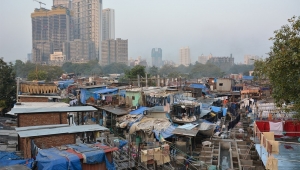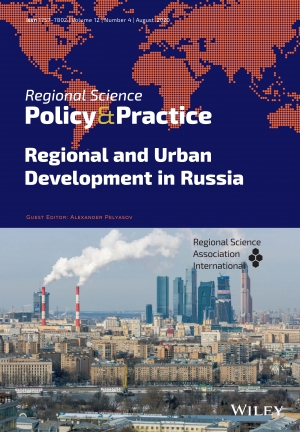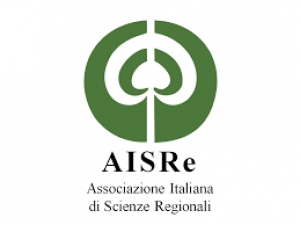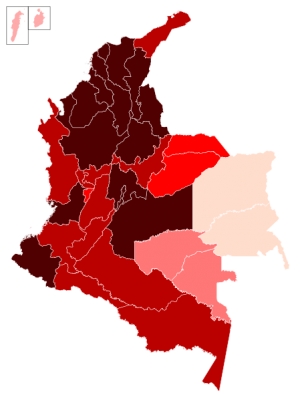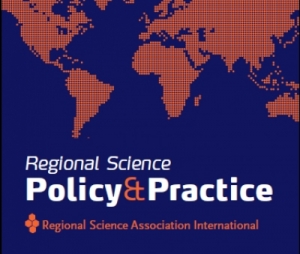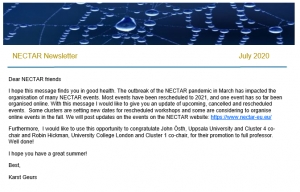Elisabete Martins
Call for contributions from around the world: For the Book "Accessible Housing for South Asia; Housing needs, implementation and impacts"
Respected Sir/Madam,
Springer plans to publish an edited volume titled “Accessible Housing for South Asia”. Although focusing Housing Issues in South Asia we would like to enlarge the committed contributions from South Asia to authors from other parts of the world, mobilizing their responsibility in the global problem of accessible housing .We strongly believe that your contribution shall significantly enrich the proposed book as well as guide future research, policy and practice in this field.
Relevance of the Edited Volume
This book highlights the major issues related to Urban Housing in South Asia looking at: a) demands and needs in space and time; b) financial capabilities, housing design and implementation; and c) socio economic and environmental impacts of housing. For various case studies the book analysis the process of delivering of houses, the issues related to access to employment, markets and services, the cumulative effects on gentrification, exclusion and spatial justice; the long term outcomes concerning economic, social and environmental sustainability of the urban tissue.
Housing is a basic human need, which many argue, is one of the most important inputs to improve livelihoods. Today, particularly in developing nations, housing is one of the most dynamic infrastructures, attributed mainly to rapid urbanization driven by large scale rural to urban migration. The scale varies but the pervasive presence of inadequate and congested housing, slums and houseless population in urban centres all across the world, bears testimony to the fact that adequate housing is still a distant dream for millions of people. UN-Habitat estimates that as of 2015, “330 million households are financially stretched by housing costs; this number could grow to 440 million by 2025.” The number would be higher if ‘houseless people’ living on the street would be added to this category. The ‘lion’s share’ of absolute housing shortage is in developing nations, mainly in South Asian and African countries. In India alone, 12 million houses are lying vacant across urban India in 2015 as against the official housing shortage of 18 million houses in urban areas. The housing challenge has received UN recognition through its mention in both Millennium Development Goals (MDGs) as well as the recently adopted Sustainable Development Goals (SDGs) which aim to, by 2030, “ensure access for all for adequate, safe and affordable housing and basic services and upgrade slums”. Notwithstanding the varied policy and program response from governments in different countries and endeavours by international agencies, achievements are limited with little or no evidence of large-scale positive impact on the urban housing sector, especially for the working class and the low-income groups. Adequate housing being a cornerstone for social equity and environmental sustainability, its failure is a threat to sustainable urbanization, and a complex challenge. Addressing housing need requires legislative, financial and technical support and involves multiple stakeholders, noting that the task of housing for all does not only entail the additional households created due to in-migration in urban places but also involves rehabilitation of Internally displaced persons and replenishment of housing stock lost to frequently recurrent natural disasters like flood, cyclones and earthquake.
Submission Guideline
- A suitable and brief title not exceeding 15 words in font size 14 should be given.
- Author/authors affiliation is mandatory with their designation, institute, postal address, mobile number and email ID.
- Abstracts should be written within 300 words along with 4 to 5 keywords.
- Submission of manuscript must be in MS-Word format with all four sides 1-inch margin. Manuscript should be typed in Times New Roman with a 12 size and keep line spacing at 1.15.
- Manuscript should contain the statement of problem, objective, research methodology and findings of the work.
- Citations and reference should comply with APA style of referencing. Give example for book and journal.
- Length of the manuscript should not exceed 4000-6000 words.
Submission of abstract/full manuscript must be sent to Prof. Tomaz Ponce Dentinho
- through email attachment (This email address is being protected from spambots. You need JavaScript enabled to view it. )
Time Line of Publication
|
Particulars |
Deadline |
|
Submission of Abstract |
August 31, 2020 |
|
Full Paper Submission |
October 31, 2020 |
|
Revision of the first draft |
November 30, 2020 |
|
Springer will receive the draft of the book |
December 31, 2020 |
|
Final corrections and licenses |
January 31, 2021 |
|
Publication |
March 31, 2021 |
Outreach
The target reader includes academicians (University and College teachers and researchers) and organisations like RSAI (Regional Science Association, International) and RSAi (Regional Science Association, India) and other Regional Science Communities in Pakistan, Nepal, Bhutan, Bangladesh, Maldives and Sri Lanka. Students of Geography, Economics, Regional Science and Spatial Planning (at both the undergraduate and postgraduate levels) shall also benefit from having a concise volume on research, policy and practice on accessible housing in South Asia.
Yours faithfully,
The Editors: Kanika Basu, Amitabh Kundu, Habibullah Magsi, Sumana Bandyopadhyay and Tomaz Dentinho
The latest issue of Regional Science Policy & Practice are available! Volume 12, Issue 4, Special Issue: Regional and Urban Development in Russia, Pages: 553-746, August 2020
|
Regional Science Policy & Practice Pages: 553-746 August 2020 |
ISSUE INFORMATION
Pages: 553-554 | First Published: 09 August 2020
INTRODUCTION
Regional and Urban Development in Russia
Alexander Pilyasov
Pages: 555-557 | First Published: 09 August 2020
ORIGINAL ARTICLES
The sandwich of Russian space: How different spaces differentiate themes in regional science
Nadezhda Zamyatina, Ruslan Goncharov, Alexandra Poturaeva, Alexander Pelyasov
Pages: 559-577 | First Published: 18 February 2020
Spatial development of the post‐Soviet Russia: Tendencies and factors
Evgeniya Kolomak
Pages: 579-594 | First Published: 17 May 2020
Population shrinkage and economic growth in Russian regions 1998–2012
Elena Batunova, Giovanni Perucca
Pages: 595-609 | First Published: 11 December 2019
Qualitative Aspect of the Regional Growth in Russia: Inclusive Development Index
Nadezhda Mikheeva
Pages: 611-626 | First Published: 16 May 2020
Economic and Fiscal Resilience of Russia's Regions
Vladimir V. Klimanov, Sofia M. Kazakova, Anna A. Mikhaylova
Pages: 627-640 | First Published: 14 April 2020
Russia's early developed regions within shrinking social and economic space
Tatiana Nefedova, Andrey Treivish
Pages: 641-655 | First Published: 26 March 2020
Impact of ethno‐demographic structure of the population on performance of the Russian regions
Leonid Limonov, Marina Nesena
Pages: 657-670 | First Published: 03 January 2020
Russian borderlands: Contemporary problems and challenges
Vladimir Kolosov, Alexander Sebentsov
Pages: 671-687 | First Published: 22 April 2020
Nikolay Kurichev, Ekaterina Kuricheva
Pages: 689-703 | First Published: 14 November 2019
Konstantin Axenov, Alisa Timoshina, Alexandra Zemlyanova
Pages: 705-722 | First Published: 22 May 2020
Stepan Zemtsov
Pages: 723-743 | First Published: 25 April 2020
BOOK REVIEWS
Deaths of Despair and the Future of Capitalism. by Case, Anne, and Deaton, Angus
Amitrajeet A. Batabyal
Pages: 745-746 | First Published: 22 May 2020
Letters in Spatial and Resource Sciences, Vol. 13, Issue 2 - New Issue Alert
|
|||||
|
In this issue |
|||||
|
|||||
|
|||||
|
|||||
|
|||||
|
|||||
|
|||||
|
|||||
|
|||||
|
|||||
|
|||||
|
|||||
|
|||||
|
|||||
|
The latest issue of Papers in Regional Science is available! Volume 99, 4 (August 2020)
|
Papers in Regional Science Pages: 855-1161 August 2020 |
ISSUE INFORMATION
Pages: 855-856 | First Published: 03 August 2020
FULL ARTICLES
Patent intensity and concentration: The effect of institutional quality on MSA patent activity
Gary A. Wagner, Jamie Bologna Pavlik
Pages: 857-898 | First Published: 03 February 2020
Interregional mobility and the personality traits of migrants
Daniel Crown, Masood Gheasi, Alessandra Faggian
Pages: 899-914 | First Published: 05 February 2020
Sucharita Ghosh, Emanuele Grassi
Pages: 915-944 | First Published: 22 January 2020
Migration and perceptions of housing availability in Sweden
Adam Tyrcha
Pages: 945-975 | First Published: 12 January 2020
![]() Open Access
Open Access
Occupational concentration and outcomes for displaced workers
Vasilios D. Kosteas
Pages: 977-997 | First Published: 17 January 2020
Environmental Engel curves in Italy: A spatial econometric investigation
Marco Baudino
Pages: 999-1018 | First Published: 24 February 2020
Victor Hugo De Oliveira, João Mário Santos de França, Francisco Mário Viana Martins
Pages: 1019-1043 | First Published: 18 February 2020
Inequality and city size: An analysis for OECD functional urban areas
David Castells‐Quintana, Vicente Royuela, Paolo Veneri
Pages: 1045-1064 | First Published: 20 February 2020
Cross‐city spillovers in Chinese housing markets: From a city network perspective
Yunlong Gong, Jan de Haan, Peter Boelhouwer
Pages: 1065-1085 | First Published: 29 January 2020
Is Gibrat's law robust when cities interact each other?
Vanessa Grüdtner, André M. Marques
Pages: 1087-1111 | First Published: 10 February 2020
Formal and statistical aspects of estimating Okun's law at a regional level
Martin Boďa, Mariana Považanová
Pages: 1113-1136 | First Published: 28 January 2020
Francisco Benita, Serhad Sarica, Garvit Bansal
Pages: 1137-1157 | First Published: 07 February 2020
BOOK REVIEW
Slavo Radosevic
Pages: 1159-1161 | First Published: 24 April 2020
Forthcoming AISRe (Italian Section) Web conference!
In these days the website of the AISRe Web Conference has been activated (https://aisre20.wordpress.com/). There you can access the program, get access to the virtual classrooms and obtain information on how to join the conference.
The Scienze Regionali Lectio Magistralis, the plenary sessions on regional impacts of the COVID pandemic and the strategies for achieving sustainable development, and the one on “Great Minds in Regional Science” will be visible in streaming.
New RSPP article free online! "Regional Economic Impact of COVID‐19 in Colombia: An Input‐Output Approach"
"Regional Economic Impact of COVID‐19 in Colombia: An Input‐Output Approach", by Jaime Bonet‐Morón, Diana Ricciulli‐Marín,Gerson Javier Pérez‐Valbuen, Luis Armando Galvis‐Aponte, Eduardo A. Haddad, Inácio F. Araújo, and Fernando S. Perobelli. - https://rsaiconnect.onlinelibrary.wiley.com/doi/abs/10.1111/rsp3.12320
The aim of this paper is to assess the regional economic impact of the lockdown measures ordered by the national government to prevent the spread of COVID‐19. Using an input‐output model, we estimate the economic loss of extracting groups of formal and informal workers from different economic sectors. Results show monthly economic losses that represent between 0.5% and 6.1% of national GDP, depending on the scenario considered. Accommodation and food services, real estate, administrative services, construction and trade are the most affected sectors. Regionally, Antioquia, Boyacá, San Andrés, Santander and Valle del Cauca appear as highly vulnerable to these restrictions.
Post-doc proposal "quantitative assessment of the energy transition"
In the framework of the EU funded project TIPPING+ (Enabling Positive Tipping Points towards clean-energy transitions in Coal and Carbon Intensive Regions), the Paris School of Economics is recruiting a post-doctoral research fellow for 1 year (with possible extension for a second year).
The research fellow will be in charge of performing (i) an econometric assessment of the impact of climate policy in European Carbon Intensive Regions and (ii) a forward-looking analysis of the potential structural changes induced by these policies. The latter analysis will rely on the development of dynamic models of the European production network.
The candidate must have a very strong quantitative background with a PhD in applied mathematics, economics, or related field (operation research, physics, statistics). Furthermore, he/she must have a good understanding of current trends in the European climate policy landscape. Interested candidates should send a cover letter and a cv (including a publication list and the contact details of three referees) to This email address is being protected from spambots. You need JavaScript enabled to view it.
Applications will be reviewed until the position is filled.
RSPP Call for Papers | Special Issue on Space, Time and Political Economy (Extended deadline: May 1, 2021)
Call for papers | Special Issue on “Space, Time and Political Economy”
Extended deadline: May 1, 2021
Following the third encounter of the Portuguese Association of Political Economy (EcPol) held in January 30 – February 1, 2020, at Faculdade de Economia da Universidade do Porto and Católica Porto Business School and dedicated to the theme “Space, Time and Political Economy”, we are hereby inviting contributions to the special issue of Regional Science Policy & Practice.
Regional Science Policy & Practice (RSPP) is the official policy and practitioner oriented journal of the Regional Science Association International. It is an international journal that publishes high quality papers in applied regional science that explore policy and practice issues in regional and local development. It welcomes papers from a range of academic disciplines and practitioners including planning, public policy, geography, economics and environmental science and related fields. More information about the journal can be found at:
https://rsaiconnect.onlinelibrary.wiley.com/hub/journal/17577802/homepage/productinformation
We welcome to this special issue contributions that study the economy in the context of a transdisciplinary study of human action. The economy is a concrete reality situated in a geographical and historical context. The various spatio-temporal contexts produce a diversity and cultural wealth that cannot be fully understood outside a transdisciplinary perspective that encompasses not only contributions from the various social sciences, but also the natural sciences, which help us to understand the material conditions of each territory.
Articles are accepted in the following topics, amongst others:
The economy and its geographical, historical and political contexts;
Economic institutions in space;
Social and spatial distribution, equality and reciprocity;
The multiple (temporal and geographical) scales of economies;
Economic ideas and policies for territorial change;
The territory and innovation / the territory and tradition;
Territorial aspects of inequality;
The political economy of space and time in capitalism and socialism.
Submissions should be made through the journal’s platform at:
https://mc.manuscriptcentral.com/rspp
Submissions should clearly state the special issue to which they are submitted. The length of the submissions should not exceed 6,000 words including abstract and footnotes and they should be written in English. Further information on the submission guidelines can be found at:
https://rsaiconnect.onlinelibrary.wiley.com/hub/journal/17577802/homepage/forauthors
Extended submission deadline: May 1, 2021
Any further queries on this special issue can be sent to the guest editors:
Francisca Guedes de Oliveira (Católica Porto Business School and CEGE): This email address is being protected from spambots. You need JavaScript enabled to view it.
Gonçalo Marcelo (CECH, Univ. de Coimbra / Católica Porto Business School): This email address is being protected from spambots. You need JavaScript enabled to view it.
Nuno Martins (Católica Porto Business School and CEGE): This email address is being protected from spambots. You need JavaScript enabled to view it.
Winner of the 2020 Peter Nijkamp award
Yi Niu, from Capital University of Economics and Business, Bejing, China, received the 2020 Peter Nijkamp RSAI Research Encouragement Award for an Mid-Career Scholar from a Developing Country.
Congratulations!
The Award recognizes the outstanding potential of an mid-career researcher from a nation in the developing world and in which there is a formal Section of RSAI, and seeks to encourage the development of the early career scholar as a high quality researcher in the field of Regional Science and as a participant in the international Regional Science community.
NECTAR Newsletter summer 2020
|
|||||||||||||||||||
|
Postponed Workshops and Special Sessions The Western regional science (WRSA) March 18-21, 2020 Hawaii USA was cancelled, including the CL5 special session Regional Science and Tourism. WSRA will be combined with NARSC, November 11-14, 2020, in San Diego. NECTAR Clusters 5 (Leisure, Recreation and Tourism) and 6 (Accessibility) are organising a NECTAR special session at NARSC on Regional Science and Tourism in the Era of Global Uncertainty. A call for paper has been distributed already. A Cluster 5 Special Session “ICT, Transport and Tourism” was to be organised at the June Regional Science Association World Congress in Marrakech. RSAI was postponed and is considering multiple future options, including holding the World Congress in Morocco in May 2021. A Cluster 6 Special session “Accessibility and Quality of Life” at the World Society for Transport and Land Use Research (WSTLUR) Conference hosted by Portland State University, USA, has been postponed from July 2020 to August 2021. NECTAR Cluster 3 (Logistics and Freight) workshop on “Intermodality and synchromodality in the European Modular System”, organized by University of Zaragoza and planned for June 4-5 2020, will be postponed to June 3-4 2021. NECTAR Cluster 5 workshop “Policies and Strategies in Sustainable Tourism”, hosted by BBW University of Applied Sciences, Berlin, planned for 18th & 19th of June, will be postponed to end June – early July 2021. The final date will be announced soon. The NECTAR Cluster 6 (Accessibility) and Cluster 4 (Travel, Migration, Housing and Labour Markets), together with the Joint Research Centre (JRC) are organizing a joint workshop “Challenges for Transport and Accessibility Policy: New Data Sources and Mobility Options”. The meeting was planned for 1- 2 October 2020 in Seville, Spain, and is rescheduled to early October 2021. Cancelled NECTAR workshop The NECTAR cluster workshop “Social and Health Implications of Active Travel Policies” originally planned for 26-27 March at the University of Venice was rescheduled to October 15-16, 2020, but given the uncertainty of the pandemic the decision has been made to cancel the workshop. The ambition is to organise a new NECTAR event in Venice in 2022. 2021 NECTAR International Conference Given the uncertainty of the global COVID pandemic, we decided to postpone the biennial NECTAR conference hosted by the University of Toronto to November 7-9, 2021. This is in the same week as the NARSC 2021 conference in Denver (Colorado), organized Nov 10-13, 2021. This allows NECTAR members to combine both conferences in one trip. Workshop Report Cluster 8 co-chairs Tuuli Toivonen and Luc Wismans organised a NECTAR special session at Mobile Tartu Conference in Estonia on Mobile phones, travel and transportation. The conference was organised online June 30, 2020. More than 240 participants from 48 countries registered. The special session comprises 5 online presentations. Mobile Tartu 2020 Virtual Conference playback is available at www.worksup.com (enter an event id: MOBILETARTU2020). Schedule NECTAR Events November 11-14, 2020, special session(s) on “Tourism and Regional Science in the Era of Global Uncertainty, 2020 North American Regional Science Council (NARSC) in San Diego, CA June 3-4 2021, NECTAR Cluster 3 (Logistics and Freight) workshop on “Intermodality and synchromodality in the European Modular System”, organized by University of Zaragoza Aug. 9-13, 2021. Cluster 6 Special session “Accessibility and Quality of Life” at the World Society for Transport and Land Use Research (WSTLUR) Conference hosted by Portland State University, USA, Nov 7-9, 2021, biennial NECTAR conference, the University of Toronto, Canada |
|||||||||||||||||||
About Us
The Regional Science Association International (RSAI), founded in 1954, is an international community of scholars interested in the regional impacts of national or global processes of economic and social change.

